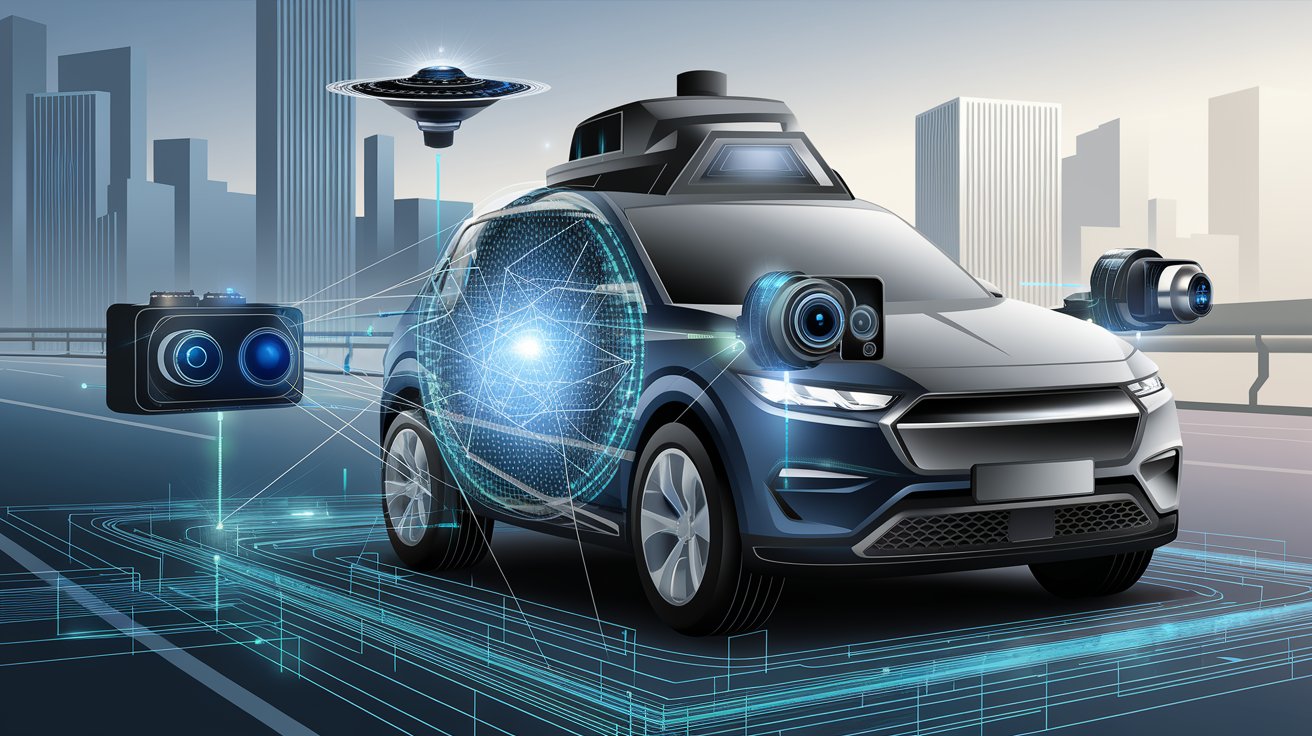Fuzzy Logic: The Secret Weapon of Autonomous Vehicle Sensor Monitoring
Autonomous vehicles (AVs) are revolutionizing transportation, but their success hinges on reliable sensor perception. This is where fuzzy logic steps in, acting as a secret weapon for enhancing sensor monitoring systems.
1. What is Fuzzy Logic and Why is it Ideal for AVs?
Traditional logic operates in absolutes – true or false, 1 or 0. Fuzzy logic, however, embraces the beautiful messiness of reality. It allows for degrees of truth, represented by membership functions. This makes it perfect for AVs, where sensor data is often noisy, ambiguous, and subject to uncertainties.
2. How Does Fuzzy Logic Enhance Sensor Monitoring?
Here’s how fuzzy logic empowers AV sensor systems:
2.1. Sensor Fusion:
Imagine a scenario where lidar detects a potential obstacle, but radar data is inconclusive. Fuzzy logic weighs evidence from both sensors, determining the likelihood of a real obstacle. This creates a more robust and accurate perception of the environment by fusing data from cameras, lidar, and radar.
2.2. Fault Detection and Isolation:
Fuzzy logic Analyses sensor data patterns, identifying inconsistencies that might indicate sensor failures. For example, if a sensor consistently deviates from others, fuzzy logic can flag it and trigger redundancy mechanisms.
2.3. Calibration and Compensation:
Sensor readings can be affected by temperature, humidity, or degradation. Fuzzy logic adjusts readings based on such factors, ensuring accuracy and reliability.
2.4. Decision Making:
Fuzzy logic translates sensor data into actionable decisions. It determines appropriate driving actions (acceleration, braking, steering) based on traffic conditions and obstacles. Imagine it calculating the perfect speed and steering angle based on surrounding vehicles, pedestrians, and road conditions.
3. Benefits of Fuzzy Logic in AV Sensor Monitoring
3.1. Improved Reliability and Robustness:
By handling uncertainty, fuzzy logic enhances the reliability of sensor systems, leading to more accurate and trustworthy data.
3.2. Enhanced Safety:
With accurate sensor data, fuzzy logic contributes significantly to safer AV operation.
3.3. Improved Performance:
Precise sensor information translates to better overall performance for AV driving systems.
4. Beyond the Basics: Cutting-Edge Applications
While the core functionalities remain the same, advancements in fuzzy logic are pushing the boundaries:
4.1. Adaptive Cruise Control:
Fuzzy logic helps adjust vehicle speed based on the distance to the car ahead, ensuring a smooth and safe driving experience.
4.2. Lane Keeping Assistance:
Fuzzy logic algorithms can detect lane markings and assist the vehicle in staying within the lane boundaries, further improving safety.
5. Challenges and Considerations
5.1. Design and Implementation:
Designing and implementing effective fuzzy logic systems is complex, requiring expertise in both fuzzy logic and AV technology.
5.2. Data Requirements:
Training and fine-tuning fuzzy logic systems necessitate large amounts of high-quality sensor data.
6.Conclusion
Fuzzy logic is a powerful tool that empowers AV sensor monitoring systems. By embracing the inherent uncertainties of the real world, fuzzy logic ensures accurate data fusion, robust decision-making, and ultimately, safer and more efficient autonomous driving. As research and development progress, fuzzy logic will undoubtedly play a pivotal role in shaping the future of autonomous vehicles.
7. References
- TechTarget – What is Fuzzy Logic? Available at: https://www.techtarget.com/searchenterpriseai/definition/fuzzy-logic
- Digital CSIC – Using Fuzzy Logic in Automated Vehicle Control. Available at: https://digital.csic.es/bitstream/10261/7861/1/using-fuzzy.pdf
- ResearchGate – Development of Fuzzy Logic Controller in Automatic Vehicle Navigation using IoT. Available at: https://www.researchgate.net/publication/379842712_Development_of_Fuzzy_Logic_Controller_in_Automatic_Vehicle_Navigation_using_IoT
- https://ncr.mae.ufl.edu/papers/asabe09.pdf
- https://www.mdpi.com/2076-3417/14/13/5697
- https://journal.esrgroups.org/jes/article/view/1254
- https://journal.esrgroups.org/jes/article/download/1254/999
- https://www.mdpi.com/2032-6653/15/9/403
- https://sciendo.com/pdf/10.2478/jbe-2024-0015
- https://digitalscholarship.unlv.edu/cgi/viewcontent.cgi?article=1035&context=me_fac_articles
- http://www.ijste.org/articles/IJSTEV4I2017.pdf
- https://intapi.sciendo.com/pdf/10.2478/jbe-2024-0015
- https://www.ajol.info/index.php/njeng/article/download/271187/255979
- https://www.researchgate.net/publication/3454431_Using_Fuzzy_Logic_in_Automated_Vehicle_Control
- GitHub – KianShokraneh/FuzzySelfDrivingCarSimulator: A simulation project utilizing fuzzy logic to mimic decision-making processes in self-driving cars. The simulator is designed to manage various driving conditions, with a focus on optimizing fuzzy rules for obstacle avoidance and speed control.
- https://www.mecs-press.org/ijeme/ijeme-v7-n2/IJEME-V7-N2-5.pdf

